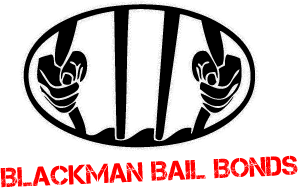Most communication between a client and their attorney is considered to be privileged. This means that what you tell your lawyer cannot be divulged to others in court. If that’s true, then what communication can be divulged? Keep reading to learn what is not covered by the attorney-client privilege.
What is Not Covered by Attorney-Client Privilege?
There is a crime-fraud exception to the attorney-client privilege rule. If you intend to lie or cover up a crime, the court applies the exception. The privilege belongs to the client, so the client’s intent is what creates the exception. Even if the attorney did not know fraud was occurring, the exception could still apply.
When Does the Crime-Fraud Exception Apply?
The crime-fraud exception applies to the following situations:
- The client intended or was in the process of committing a fraudulent act or crime.
- The client communicated specifically to cover up or further the crime or fraud.
In some states, the exception of client-attorney privilege is not limited to fraud and crimes. If a landlord, for example, seeks advice about unlawfully evicting a tenant, the exception applies. This occurs if a client’s goal is a civil tort. A civil tort is an act committed by one person that causes harm to another.
Intent vs. Negligence
Most torts occur because of negligence, which basically means carelessness. The person doesn’t mean to cause personal injury, damage to reputation, or damage to property. The person caused one or more of those results to occur, but not intentionally.
Other torts occur when the person causes issues on purpose. This is an intentional tort and depends on the mindset of the person committing it. If someone intends to damage your car by running theirs into it, it’s intentional. Lying to your lawyer intentionally to cover up a crime is an intentional tort.
Crimes vs. Frauds
The crime-fraud exception depends on the context and content of communication between clients and lawyers. The communications include asking the lawyer to lie, destroying or concealing evidence, or witnessing tampering. It can also involve concealing assets or income.
An important issue to consider is whether the communication involves past or present crimes. Conversations about past crimes usually fall under client-privilege. If a crime or fraud is ongoing, communications about them are not usually considered privileged.
A client asking about a possible future crime or fraud might not apply. If asking advice about possible future actions, the court will likely need to decide.
What Happens if a Client is Caught Covering up a Crime or Fraud?
If the crime-fraud exception is valid, the prosecution will subpoena the attorney. The attorney will then need to disclose the content of their communication with their client. If the prosecution does not know about the communication, the lawyer should still disclose it. Ethically, it’s the right thing to do, and lawfully, they could risk criminal charges.
These communications can include:
Perjury
If attorneys know their client is presenting false evidence, they’re required to tell the court.
Missing Person
If a lawyer learns of missing victims or witnesses in danger, they should report it.
Threats
If the client threatens harm to another, the attorney may have to report it.
Crucial Evidence
If the attorney learns of crucial evidence, they would likely need to turn it over.
State Differences
Each state is different, so it’s good to know the laws of the state you’re in. Some differences can include statutes, evidence rules, and court decisions. Every state observes the crime-fraud exception, but each in their unique way. Most exceptions to the Attorney-Client privilege change from case to case, based on the evidence presented.
If You Have Been Arrested, We Can Help
If you or a loved one has been arrested, contact Blackman Bail Bonds today.


